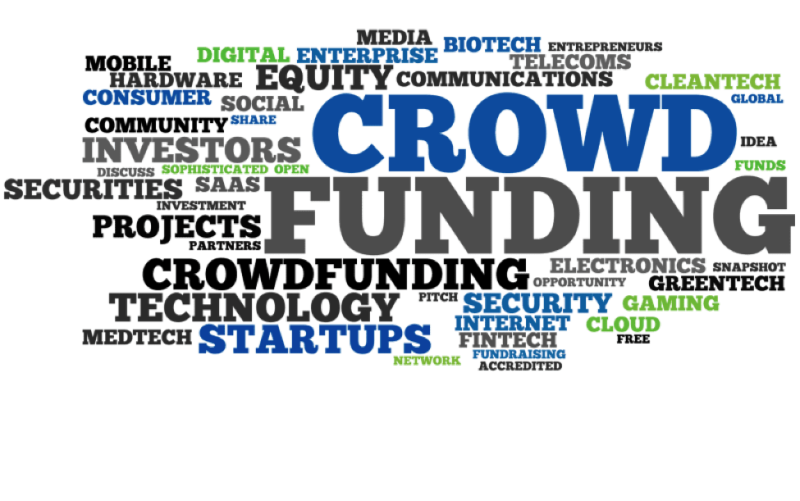More and more companies and everyday investors want access to private companies. The private market is powered by private companies. These companies are not subject to a lot of government oversight, regulation, or reporting requirements. Consequently, not much is known about their financial health, profitability, or operations. Moreover, the private market is illiquid, not volatile, and it takes time for investments to mature. This means that investors cannot easily trade their corporate assets and that they must stay invested in a company for a substantially longer period of time than people who invest in public companies.
Still, many people want to invest in them because they have significantly higher returns on investment than public companies. These high ROIs are necessary because the investors cannot predict when they will get their ROI, the actual ROI, and must remain invested in the company until they get a payout, can trade their holdings, or the company goes bankrupt. In order to attract investors to this high risk investment, private companies must offer substantially higher ROIs than public companies.
Also Read: Bull and Bear Markets: Understanding the Trends That Dominate Financial Markets
Contents
- Economy: Public and Private Markets
- Corporate Fundraising: Sources of Financing
- Increasing Access to Private Companies
- Key Takeaways
- FAQs
Economy: Public and Private Markets

are two kinds of markets that power national economies, the public and private markets. Most people know about public markets because they hear news about the stock exchanges (e.g., NYSE, NASDAQ), the governmental agencies that regulate the public markets (e.g., SEC, FINRA, CFTC), and the laws passed to protect the public from unscrupulous companies and their directors (e.g., Sarbanes-Oxley Act, Dodd-Frank Act).
Private Markets and Companies

However, much less is known about private markets. Private markets are powered by private companies. Most private companies are small and owned by individuals and families. A significantly smaller but rather important segment of them are private companies until they perform well enough in the market to go public. These types of companies are usually referred to as unicorns.
Unicorns
Unicorns tend to go public when they are valued at US$1 billion dollars or more. They announce their entry into the public market by having an initial public offering (IPO). During the IPO, members of the public are invited to purchase equity in the newly launched public company. After moving from the private to the public market, they must comply with a variety of government regulations, reporting requirements, and issue many different documents so that the public can be fully informed about the company's operations.
Corporate Fundraising: Sources of Financing
All companies need capital to fund their operations. Whether the money is used for paying employees, developing products, running the business, or expanding operations, they must have it, or they will not be able to compete and grow. Corporations raise capital in two ways, debt and equity. They acquire debt by getting bank loans and issuing corporate bonds. Equity produces funds by selling a share or piece of the company to investors. There may be different classes of investors. Some investors may get guaranteed dividends and some may be able to vote. It is important to note that if the company goes bankrupt, its creditors are paid before its equity investors. In such cases, often the equity investors get nothing.
Public Equity Investors
Public equity is purchased in the form of stocks, exchange traded funds, stock indexes, and other types of corporate investment. These investments give their owners a stake in the company's future and financial performance in exchange for their capital investment. Since anyone can invest in public companies, the value of their financial instruments is volatile. Their market value can rapidly rise and fall based on rumors, speculation, news events, changes in laws. This volatility creates opportunities for lucrative investments and devastating losses. Moreover, trading in public equity requires, in general, less capital, and the investors can easily trade their holdings and hold them for short or long periods of time. Public equity investors include mutual funds, exchange traded funds, exchange traded products, 401(k)s, private individuals, small businesses, charities, etc.
Private Equity Investors
Private equity is a murky world where there is a dearth of information about that is happening in private companies that make up the private market. Since the private companies are not heavily regulated nor required to publicly divulge their financial statements or information about their operations and the market is illiquid, the government protects the public by limiting who can invest in this market. Private equity investment is limited to sophisticated investors.
Sophisticated Investors
Sophisticated investors are individuals who have a minimal level of wealth and institutional investors. Institutional investors include hedge funds, venture capital funds, investment banks, pension funds, corporations, private equity firms, and any other large well capitalized entities. These investors knowingly assume the risks that come with private market investments. Furthermore, they are in a financial position to be able to afford to lose the large amounts of money that they have invested in the private market.
Private equity investors learn about opportunities in the private market from wealth managers. The private capital managers have access to inside information about companies. Moreover, these managers also invest their own capital into the private companies that they pitch to their clients. Thus, unlike many stockbrokers and analysts, if the private company performs poorly the wealth managers are as badly affected as their clients.
Private Capital Managers Role in Private Markets
Since the private capital managers are heavily invested in the private companies, and they are steering large amounts of money to the companies that need it, they demand and influence how the private company is run. This enables the private company to benefit from the expertise, knowledge, and networks of people with power, money and industry connections. On the other hand, these industry people want to maximize their ROI, so their decisions may not always be in the best interests of the company and its founders. This is something that the owners of the private company must come to terms with before accepting money from institutional investors.
Also Read: Equities vs Stocks
Increasing Access to Private Companies

Crowdfunding has increased access to private companies and boosted the amount of investments received by them. The crowdfunding campaigns permit them to access money from investors who do not qualify as sophisticated investors and would normally not be allowed access to the private market. Industry observers believe that crowdfunding has helped to democratize investment in private companies. It is giving more everyday people and less well-heeled companies access to private equity investments and the high ROIs received when the company performs well.
The SEC has also made moves to open up the private markets to unsophisticated investors. It has announced that it will issue more regulations that open up private markets to a more diverse group of investors. Some of the new regulations that it is issuing include Regulation Crowdfunding, Regulation A+ (i.e., mini-IPO), and other regulations that will provide access to private markets for accredited individuals and some retail investors.
Key Takeaways
Trading on the public market, in the USA, is worth about US$33 trillion and on the private market it is valued at US$100 billion (US$0.1 trillion) per year. However, the U.S. private market is valued at US$2.9 trillion, while its public market's valuation is US$1.4 trillion. It is expected to grow even more due to increasing numbers of private technology companies entering the market. The investors with access to these companies can earn amazing ROIs if they can buy into the companies before they go public.
Private companies are using crowdfunding to democratize access to their offerings. The SEC is working to increase access to private companies by increasing regulation of them and allowing accredited investors and some small retail businesses access to them. This provides increased funding opportunities for private companies, wealth generation opportunities for unsophisticated investors, and more oversight by the government.
The ugly side of this increased access to the private market is that even more investors will lose their money when private companies become insolvent or there are crippling instances of corporate fraud and/or mismanagement. This downside is being minimized, but at some point the investors who want access to the above average ROIs will have to weather the risks that accompany it and, hopefully, they can afford them.
FAQs
What is the difference between public and private companies?
Public companies are regulated by the U.S. Securities and Exchange Commission (SEC) and many other government agencies. They must comply with federal laws and regulations and release information to the public so that their investors can have enough information to determine if the company is a good investment.
Private companies are generally owned by an individual, family, or small group of people. They are usually small too. They are not required to comply with the same regulations as public companies, so they spend less money on legal compliance and people outside the company know very little about them.
What does it mean if a market is non-volatile?
A non-volatile market has prices that are fairly stable and fairly unaffected by outside events, rumors, and politics. On the other hand, a volatile market has prices that constantly change and can be affected by almost anything. Examples of volatile markets include the cryptocurrency markets and stock market.
What does it mean if a market is illiquid?
Financial markets are labeled liquid or illiquid based on how easy it is for investors to trade and cash out of their assets. Public markets are considered liquid because investors can easily buy, sell, and trade their stocks and other financial instruments.
The private market is considered illiquid because there are a small number of investors, high barriers to entry, investors may only be able to sell or trade their shares with a small group of investors, and often the investors can only cash out, trade, or sell their holdings after the private company transitions into a public company – a process that can take years.
Why do financial markets give institutional investors preferential treatment over everyday investors?
Government regulators of financial markets assume that institutional investors like hedge funds, private equity firms, venture capital firms, private debt funds, and sovereign wealth funds, have access to professional financial advisors and that they have the funds to lose if their investment performs poorly. Everyday investors without good investment advice and lots of money would be financially ruined by the loss of a large investment. So, the preferential treatment (if you want to call it that) exists to protect the public from unscrupulous business people hiding behind private companies who might steal their money and leave them destitute if given the chance to do so.













